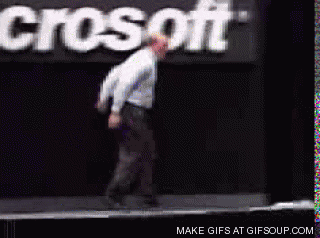Again with the Steam comparisons... Even if it were all-digital, there is one major, fundamental difference that they have missed:
Steam has a little feature called "Offline mode" that works forever, even if you never connect your device to the internet again. If you have a connection, Steam will check to make sure the game isn't being played on multiple devices at once, but it never requires a connection outside of a one-time activation.
Why is this important? Here's a few examples:
[ol][li]Youth organizations, community centers, church youth groups, etc. - Many of these are in separate rooms or buildings from their parent organization, and frequently without any sort of internet access, even if the main office or whatever has it.[/li]
[li]Children's bedrooms - Many parents have no problem with their kid having a TV and games in their room, but deliberately do not grant them internet access. One-time online activation is enough of a pain on its own, but to require it every 24 hours makes such a thing entirely unfeasible.[/li]
[li]Unreliable internet - This is a huge problem for college dorms, but even a problem for many people with their own homes and standard ISPs. If there's more than 24 hours of downtime, a daily activation requirement would make the system unusable. Not everyone has the option of simply switching ISPs in this case either, depending on the reason for the downtime and the local competition.[/li][/ol]
But that aside, attempting to copy Steam is a mistake anyway. The whole point of a game console is that it isn't a PC (even if the hardware inside essentially is). What works for one doesn't necessarily work for the other, and if they bridge the gap too much, people will reject the console on the basis that they already have a PC. Make a console a unique product, something that complements a PC with its differences, and people will be more likely to accept it.
P.S. Thanks
P.P.S. PC sales and Windows 8 sales are already not in the best place right now. Do you really want to try and cannibalize your own sales more than you have to, MS?
Steam has a little feature called "Offline mode" that works forever, even if you never connect your device to the internet again. If you have a connection, Steam will check to make sure the game isn't being played on multiple devices at once, but it never requires a connection outside of a one-time activation.
Why is this important? Here's a few examples:
[ol][li]Youth organizations, community centers, church youth groups, etc. - Many of these are in separate rooms or buildings from their parent organization, and frequently without any sort of internet access, even if the main office or whatever has it.[/li]
[li]Children's bedrooms - Many parents have no problem with their kid having a TV and games in their room, but deliberately do not grant them internet access. One-time online activation is enough of a pain on its own, but to require it every 24 hours makes such a thing entirely unfeasible.[/li]
[li]Unreliable internet - This is a huge problem for college dorms, but even a problem for many people with their own homes and standard ISPs. If there's more than 24 hours of downtime, a daily activation requirement would make the system unusable. Not everyone has the option of simply switching ISPs in this case either, depending on the reason for the downtime and the local competition.[/li][/ol]
But that aside, attempting to copy Steam is a mistake anyway. The whole point of a game console is that it isn't a PC (even if the hardware inside essentially is). What works for one doesn't necessarily work for the other, and if they bridge the gap too much, people will reject the console on the basis that they already have a PC. Make a console a unique product, something that complements a PC with its differences, and people will be more likely to accept it.
P.S. Thanks
P.P.S. PC sales and Windows 8 sales are already not in the best place right now. Do you really want to try and cannibalize your own sales more than you have to, MS?

